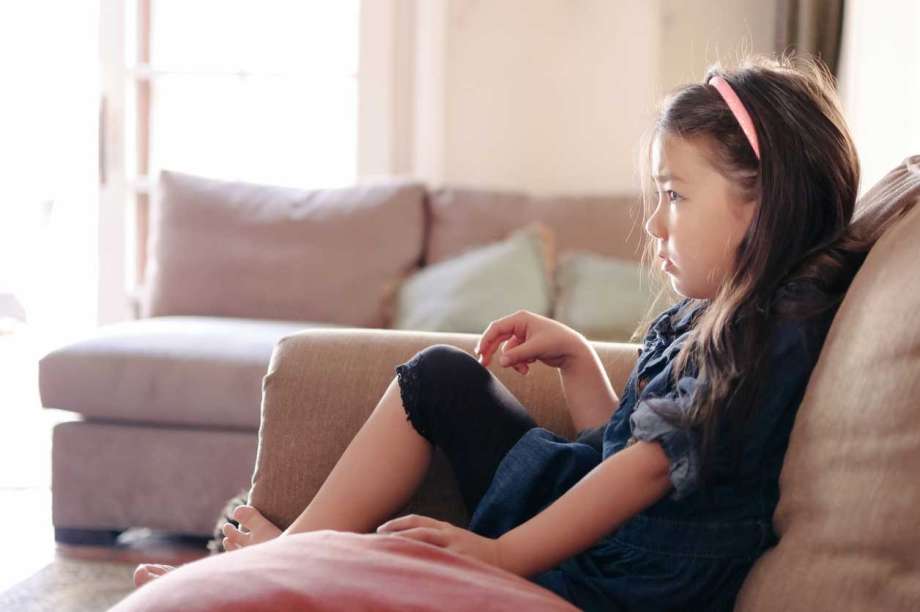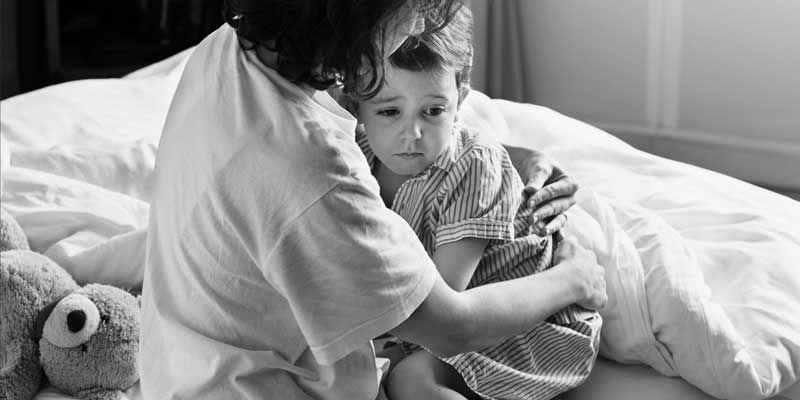Is the News Bad News for Children?

Many children get very concerned about current affairs. In moderation, television can be a great source of education and entertainment for kids. But unrestricted viewing also confronts children with realities many of them are not psychologically ready to digest. They will witness scenes of violence and bloodshed, see starving and abandoned children from all over the world, and hear reports of children being abducted from hotel rooms while they sleep.
More: Images of Women in the Media
Listen to the questions children ask, and you will be left in little doubt about the undercurrent of anxiety that exposure to the media can stir up:
"Can our house flood like those ones on the news?"
"If there was a war in our country, would you have to go and fight, Daddy?"
"What will happen to Pez [the family dog] when the sun burns up the Earth?"
"When will I get cancer like that girl with no hair?"
In the mid-1990s, I was a junior researcher in a government-funded study that followed a group of children from infancy into their teenage years. Part of my job was to interview them and their parents about various aspects of their lives. The children were eight years old when I went to see them, but I distinctly remember being constantly surprised by how many parents said their children had nightmares about current affairs stories they had heard on the news or seen on TV.

More: Violence on Television
It's all too easy to leave the television on in the background—we may not even be conscious of what our children are taking in. Unfortunately, children often lack the information, experience, or understanding to put news stories into context or assess risks realistically. Because of this, children tend to fill in the gaps with their imagination. An eye-catching headline can provide the seed for vivid nightmare scenarios that can later keep them awake at night.
Tips for Allowing Your Child to Watch the News
- If you are going to allow your child to watch the news, I recommend that until your child reaches age ten, you restrict viewing to current affairs programs aimed at a younger audience. Also, it can be helpful to make this an activity in which you and your child sit down and watch together. First, you will know exactly what he has seen. More important, you will be able to review the content of the program with him. In this way, you have an opportunity to tackle any fears and offer a more balanced perspective.
- Don't be afraid to ask younger children directly whether they have concerns about anything they have seen on the screen so you know how to respond. You will also be encouraging a family culture in which your child gets used to voicing his fears. This is particularly important in light of a recent Kidscape survey reporting that only a quarter of 9 to 13 year olds were prepared to share their worries with a parent.
- If you let your child who's under ten watch the news, be there with her and ask if anything she has seen bothers her.
- If your child does confide a fear about something she has seen or heard, always take it seriously. Resist the temptation to laugh it off or dismiss it out of hand. This won't make your child feel any better. Children can get anxious about things that might seem absurd to grown-ups, but if they feel ridiculed, they may well decide to keep their concerns to themselves in the future. Many of our own fears are irrational, but that doesn't make them any less real. Giving your child's anxieties thoughtful consideration and adopting a pragmatic, problem solving approach is helpful on a number of levels. Not only does it demonstrate that you are engaging with your child's concerns, but it also shows that a rational, reasoned response can go a long way to setting her mind at ease.
In today's climate, it's more important than ever to talk to your kids about what is going on in the news. If you're struggling with how to talk to your kid about the #MeToo movement, check out this Pin for some tips: